How Weather Affects Fence Repair in Manteca
페이지 정보

본문
Weather plays a significant role in the longevity and condition of your fence. In Manteca, where the climate can vary from dry, hot summers to wet, cool winters, fences are constantly exposed to elements that cause wear and tear. The intense summer heat can warp or crack wood, while the winter rains may lead to rusting or rotting.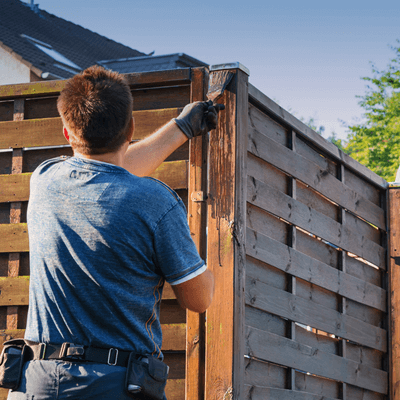
Understanding how these weather conditions impact your fence is crucial for timely fence repair. Addressing damage early can prevent more extensive issues down the road, ensuring that your fence remains sturdy and reliable throughout the year.
How Heat Affects Wooden Fences
Wooden fences are particularly vulnerable to the intense summer heat in Manteca. Prolonged exposure to high temperatures can cause wood to expand and contract, leading to warping and cracking. As the wood dries out, it loses moisture, which further exacerbates these issues. This can result in gaps and weaknesses in your fence, compromising its structural integrity.
To mitigate heat-related damage, it’s essential to regularly inspect your fence for signs of warping or splitting. Applying a protective sealant can help shield the wood from excessive moisture loss and UV rays. Regular maintenance and timely repairs can prevent minor issues from escalating into major problems, ensuring your wooden fence remains sturdy and aesthetically pleasing throughout the hot months.
Impact of Rain on Fence Durability
Rain and moisture can significantly impact the durability of your fence, especially in a climate where heavy rains are common. For wooden fences, constant exposure to rain can lead to rotting and mold growth. Over time, this can weaken the wood, making it susceptible to breaking or collapsing. Metal fences, on the other hand, are at risk of rusting when exposed to moisture without proper protection.
To protect your fence from rain-related damage, it’s crucial to treat wooden fences with a water-resistant sealant. For metal fences, applying a rust-inhibiting coating can prevent rust from forming. Regular inspections and maintenance will help identify and address any moisture-related issues before they become serious problems.
Seasonal Changes and Fence Maintenance
Seasonal changes in Manteca can put your fence to the test. Each season brings its own set of challenges, from scorching summer heat to cold, rainy winters. During spring and fall, leaves and debris can accumulate, causing potential blockages and moisture retention. Summer heat can cause wood to dry out and crack, while winter frost can lead to expansion and contraction issues.
To keep your fence in top condition throughout the year, it’s important to adjust your maintenance routine according to the season. Regularly clear debris, check for signs of weather-related damage, and make necessary repairs. Seasonal maintenance ensures that your fence remains durable and functional, regardless of the weather conditions.
Identifying Weather-Induced Fence Damage
Weather-induced damage can be subtle, but catching it early can save you from costly repairs down the line. In Manteca, look for signs like warped wood, rust spots, or loose components. Wooden fences may exhibit cracks or split sections, while metal fences might show signs of corrosion.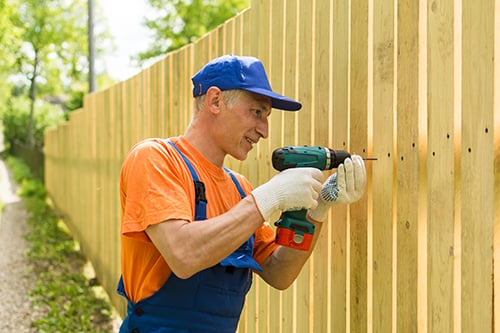 Moisture buildup can also lead to mold and rot in wooden fences.
Moisture buildup can also lead to mold and rot in wooden fences.
Inspect your fence regularly, especially after severe weather. Look for changes in the fence’s appearance or stability. Addressing these issues promptly helps prevent further damage and maintains the overall integrity of your fence. Regular checks and proactive repairs can extend the life of your fence and ensure it withstands the elements.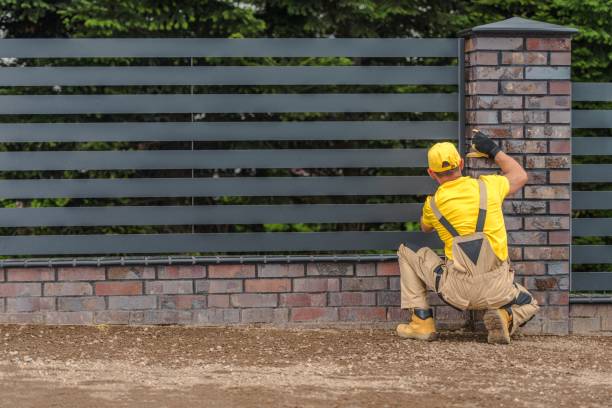
Preventing Rust in Metal Fences
Rust is a common issue for metal fences, particularly in areas with frequent rain or high humidity. Rust forms when moisture comes into contact with metal surfaces, causing them to deteriorate over time. This can weaken the structure of your fence and diminish its appearance.
To prevent rust, it’s important to apply a rust-resistant coating to your metal fence. Regularly inspect the fence for any signs of rust and address them immediately. Keeping your metal fence clean and free of debris can also help reduce the chances of rust forming. Proper maintenance ensures that your fence remains strong and visually appealing for years to come.
Repairing Cracks from Summer Sun
Summer sun can be harsh on fences, especially those made of wood. Prolonged exposure to high temperatures can cause wood to crack and split, weakening its structure. These cracks can allow moisture to seep in, leading to further damage.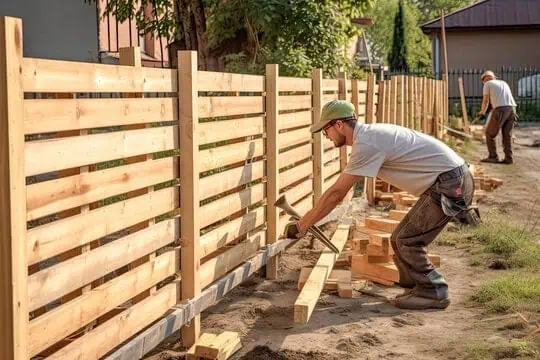
To repair these cracks, start by cleaning the affected area and removing any debris. Apply a wood filler or sealant to fill in the cracks and prevent moisture from penetrating. Sand the area smooth and consider applying a protective finish to shield the wood from future damage.
Apply a wood filler or sealant to fill in the cracks and prevent moisture from penetrating. Sand the area smooth and consider applying a protective finish to shield the wood from future damage.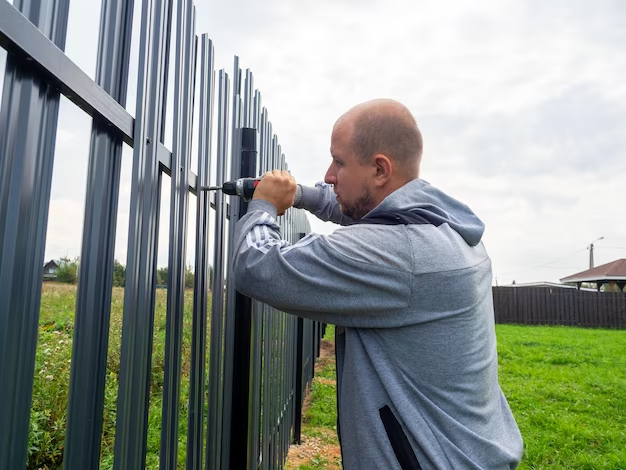 Regular inspections and timely repairs will help maintain the strength and appearance of your fence.
Regular inspections and timely repairs will help maintain the strength and appearance of your fence.
Winter Moisture and Fence Longevity
Winter moisture, including rain and snow, can have a significant impact on the longevity of your fence. For wooden fences, moisture can lead to rot and decay if not properly managed. Metal fences are also at risk of rusting due to increased moisture exposure.
For wooden fences, moisture can lead to rot and decay if not properly managed. Metal fences are also at risk of rusting due to increased moisture exposure.
To protect your fence during winter, ensure proper drainage around the base to prevent water accumulation. For wooden fences, applying a water-resistant sealant before winter sets in can provide added protection. Metal fences should be treated with a rust-inhibiting coating.
Metal fences should be treated with a rust-inhibiting coating. Regular inspections throughout the winter months will help catch any issues early and ensure your fence remains in good condition.
Regular inspections throughout the winter months will help catch any issues early and ensure your fence remains in good condition.
Understanding Fence Material Reactions
Different fence materials react differently to weather conditions. Wood, for instance, is prone to warping, cracking, and rotting when exposed to moisture and extreme temperatures. Metal fences may rust and corrode if not properly treated. Understanding how your fence material reacts to weather helps in choosing the right maintenance strategies.
Understanding how your fence material reacts to weather helps in choosing the right maintenance strategies.
Regularly inspect your fence and be proactive in addressing issues related to weather exposure. Applying appropriate treatments and making timely repairs based on the material will extend the life of your fence and keep it looking its best. Knowing how each material responds to weather conditions allows you to take the necessary steps to protect your investment.
Best Practices for Fence Care Year-Round
Maintaining your fence throughout the year involves regular upkeep and seasonal adjustments to ensure its longevity. By following these best practices, you can keep your fence in top condition no matter the season.
Spring and Fall Cleaning: Clear leaves, debris, and algae from your fence. Accumulated debris can retain moisture and lead to rot or rust. Use a mild detergent and a soft brush to clean, ensuring you don't damage the fence surface.
Summer Inspections: During the hot months, check for signs of warping, cracking, or fading, especially on wooden fences. Apply a protective sealant to safeguard against UV damage and moisture loss. Regularly tighten any loose components to maintain structural integrity.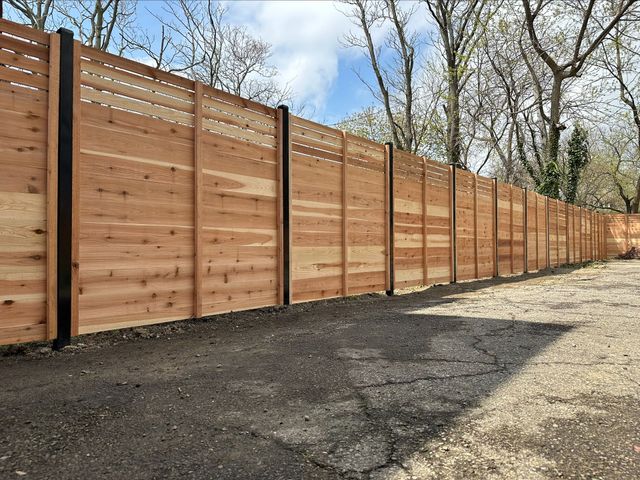
Winter Preparation: Before winter sets in, ensure proper drainage around your fence to prevent water accumulation at the base. For wooden fences, apply a water-resistant sealant to prevent moisture damage.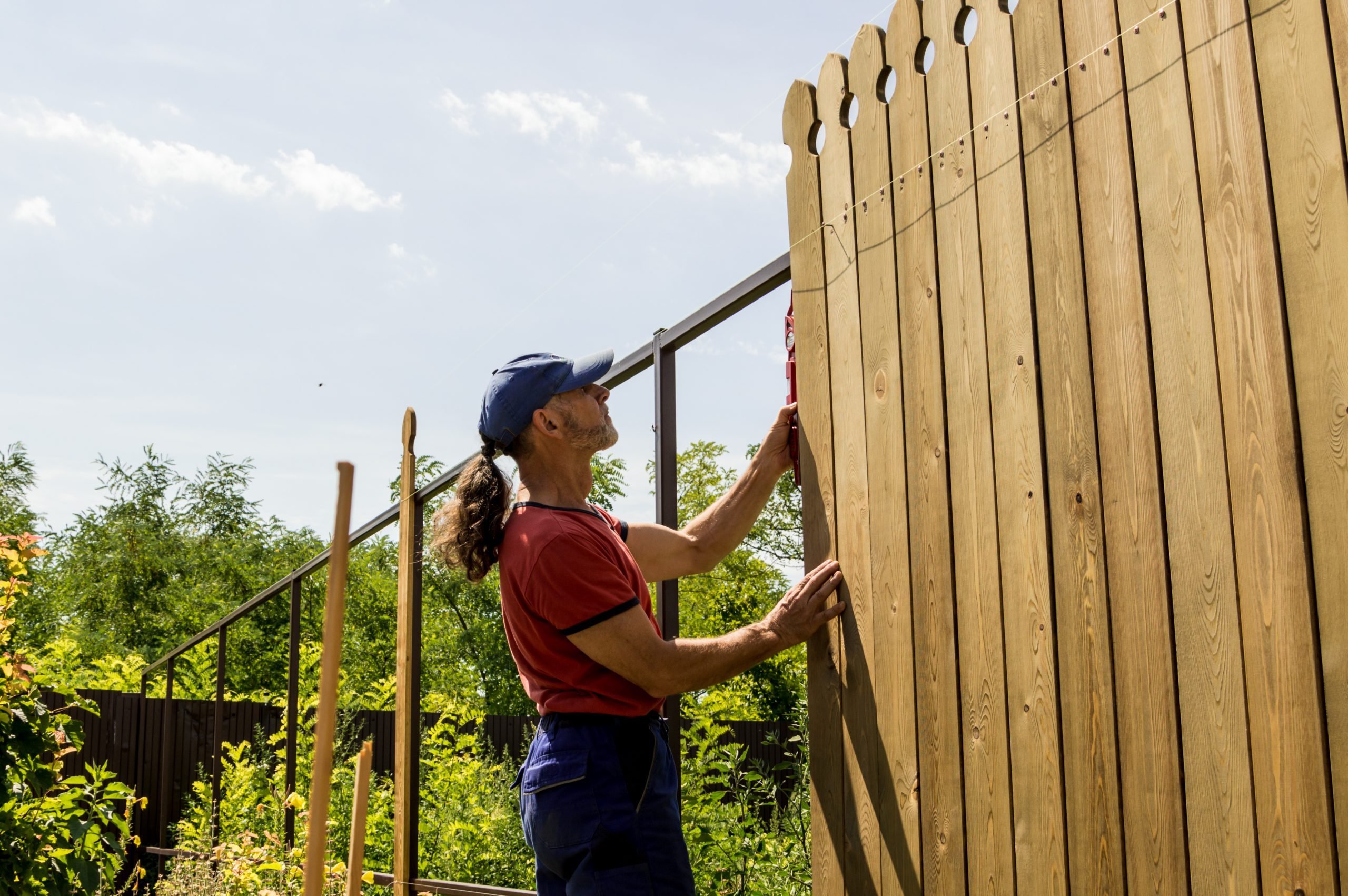 Inspect for any signs of damage that could worsen with frost.
Inspect for any signs of damage that could worsen with frost.
Regular Repairs: Address minor issues promptly to prevent them from becoming major problems. Repair cracks, replace damaged sections, and treat rust spots as soon as you notice them. Regular maintenance helps extend the life of your fence.
Seasonal Coatings: Apply appropriate coatings or treatments based on the season. Use rust-inhibiting paint for metal fences and water-resistant sealant for wood. These treatments protect against weather-related damage and maintain the fence's appearance and functionality.
Use rust-inhibiting paint for metal fences and water-resistant sealant for wood. These treatments protect against weather-related damage and maintain the fence's appearance and functionality.
By incorporating these practices, you can ensure your fence remains durable and attractive throughout the changing seasons. Regular care and attention will help you avoid costly repairs and keep your fence in excellent condition year-round.
Signs You Need Professional Fence Repair
Maintaining your fence throughout the year ensures its longevity and performance. Regular care and seasonal adjustments are key to keeping your fence in excellent condition regardless of weather conditions.
Spring and Fall Cleaning
Remove leaves, debris, and dirt from your fence regularly. Accumulated organic material can trap moisture against the fence repair manteca ca, leading to mold, rot, or rust. For wooden fences, this helps prevent rot and decay, while for metal fences, it minimizes rust-promoting grime and extends their lifespan.
Summer Heat Protection
Inspect your fence during hot months for sun-induced damage such as warping or cracking. Wood can dry out and become brittle, while metal can be affected by UV exposure. Apply protective sealants to wooden fences to prevent drying and consider rust-resistant coatings for metal fences to shield against harmful UV rays.
Winter Moisture Management
Ensure proper drainage around your fence to avoid water buildup, which can lead to rot or rust. For wooden fences, apply a water-resistant sealant before winter to protect against moisture. Metal fences should be checked for rust, and rust-inhibiting treatments should be applied to prevent deterioration from winter weather.
For wooden fences, apply a water-resistant sealant before winter to protect against moisture. Metal fences should be checked for rust, and rust-inhibiting treatments should be applied to prevent deterioration from winter weather.
Routine Inspections
Conduct regular inspections of your fence to identify any signs of damage, such as cracks, rust, or loose components. Addressing minor issues quickly can prevent them from developing into more severe problems. Regular upkeep helps maintain the strength and visual appeal of your fence, ensuring long-term durability.
Understanding how weather affects your fence is crucial for maintaining its durability and appearance. From the intense summer heat causing wood to crack, to winter moisture leading to rust and decay, being proactive in your maintenance can save you from costly repairs. Regular inspections and timely repairs ensure that your fence remains strong and visually appealing throughout the year.
If you need expert help with fence repair in Manteca, don’t hesitate to reach out. Contact High Quality Fence for reliable, high-quality service. Call us at 209-815-9015 or email info@highqualityfence.com. Visit us at 1112 N. Main Street #171, Manteca, CA 95336.

Understanding how these weather conditions impact your fence is crucial for timely fence repair. Addressing damage early can prevent more extensive issues down the road, ensuring that your fence remains sturdy and reliable throughout the year.
How Heat Affects Wooden Fences
Wooden fences are particularly vulnerable to the intense summer heat in Manteca. Prolonged exposure to high temperatures can cause wood to expand and contract, leading to warping and cracking. As the wood dries out, it loses moisture, which further exacerbates these issues. This can result in gaps and weaknesses in your fence, compromising its structural integrity.
To mitigate heat-related damage, it’s essential to regularly inspect your fence for signs of warping or splitting. Applying a protective sealant can help shield the wood from excessive moisture loss and UV rays. Regular maintenance and timely repairs can prevent minor issues from escalating into major problems, ensuring your wooden fence remains sturdy and aesthetically pleasing throughout the hot months.
Impact of Rain on Fence Durability
Rain and moisture can significantly impact the durability of your fence, especially in a climate where heavy rains are common. For wooden fences, constant exposure to rain can lead to rotting and mold growth. Over time, this can weaken the wood, making it susceptible to breaking or collapsing. Metal fences, on the other hand, are at risk of rusting when exposed to moisture without proper protection.
To protect your fence from rain-related damage, it’s crucial to treat wooden fences with a water-resistant sealant. For metal fences, applying a rust-inhibiting coating can prevent rust from forming. Regular inspections and maintenance will help identify and address any moisture-related issues before they become serious problems.
Seasonal Changes and Fence Maintenance
Seasonal changes in Manteca can put your fence to the test. Each season brings its own set of challenges, from scorching summer heat to cold, rainy winters. During spring and fall, leaves and debris can accumulate, causing potential blockages and moisture retention. Summer heat can cause wood to dry out and crack, while winter frost can lead to expansion and contraction issues.
To keep your fence in top condition throughout the year, it’s important to adjust your maintenance routine according to the season. Regularly clear debris, check for signs of weather-related damage, and make necessary repairs. Seasonal maintenance ensures that your fence remains durable and functional, regardless of the weather conditions.
Identifying Weather-Induced Fence Damage
Weather-induced damage can be subtle, but catching it early can save you from costly repairs down the line. In Manteca, look for signs like warped wood, rust spots, or loose components. Wooden fences may exhibit cracks or split sections, while metal fences might show signs of corrosion.
 Moisture buildup can also lead to mold and rot in wooden fences.
Moisture buildup can also lead to mold and rot in wooden fences.Inspect your fence regularly, especially after severe weather. Look for changes in the fence’s appearance or stability. Addressing these issues promptly helps prevent further damage and maintains the overall integrity of your fence. Regular checks and proactive repairs can extend the life of your fence and ensure it withstands the elements.

Preventing Rust in Metal Fences
Rust is a common issue for metal fences, particularly in areas with frequent rain or high humidity. Rust forms when moisture comes into contact with metal surfaces, causing them to deteriorate over time. This can weaken the structure of your fence and diminish its appearance.
To prevent rust, it’s important to apply a rust-resistant coating to your metal fence. Regularly inspect the fence for any signs of rust and address them immediately. Keeping your metal fence clean and free of debris can also help reduce the chances of rust forming. Proper maintenance ensures that your fence remains strong and visually appealing for years to come.
Repairing Cracks from Summer Sun
Summer sun can be harsh on fences, especially those made of wood. Prolonged exposure to high temperatures can cause wood to crack and split, weakening its structure. These cracks can allow moisture to seep in, leading to further damage.

To repair these cracks, start by cleaning the affected area and removing any debris.
 Regular inspections and timely repairs will help maintain the strength and appearance of your fence.
Regular inspections and timely repairs will help maintain the strength and appearance of your fence.Winter Moisture and Fence Longevity
Winter moisture, including rain and snow, can have a significant impact on the longevity of your fence.
 For wooden fences, moisture can lead to rot and decay if not properly managed. Metal fences are also at risk of rusting due to increased moisture exposure.
For wooden fences, moisture can lead to rot and decay if not properly managed. Metal fences are also at risk of rusting due to increased moisture exposure.To protect your fence during winter, ensure proper drainage around the base to prevent water accumulation. For wooden fences, applying a water-resistant sealant before winter sets in can provide added protection.
Understanding Fence Material Reactions
Different fence materials react differently to weather conditions. Wood, for instance, is prone to warping, cracking, and rotting when exposed to moisture and extreme temperatures. Metal fences may rust and corrode if not properly treated.
Regularly inspect your fence and be proactive in addressing issues related to weather exposure. Applying appropriate treatments and making timely repairs based on the material will extend the life of your fence and keep it looking its best. Knowing how each material responds to weather conditions allows you to take the necessary steps to protect your investment.
Best Practices for Fence Care Year-Round
Maintaining your fence throughout the year involves regular upkeep and seasonal adjustments to ensure its longevity. By following these best practices, you can keep your fence in top condition no matter the season.
Spring and Fall Cleaning: Clear leaves, debris, and algae from your fence. Accumulated debris can retain moisture and lead to rot or rust. Use a mild detergent and a soft brush to clean, ensuring you don't damage the fence surface.
Summer Inspections: During the hot months, check for signs of warping, cracking, or fading, especially on wooden fences. Apply a protective sealant to safeguard against UV damage and moisture loss. Regularly tighten any loose components to maintain structural integrity.

Winter Preparation: Before winter sets in, ensure proper drainage around your fence to prevent water accumulation at the base. For wooden fences, apply a water-resistant sealant to prevent moisture damage.
 Inspect for any signs of damage that could worsen with frost.
Inspect for any signs of damage that could worsen with frost.Regular Repairs: Address minor issues promptly to prevent them from becoming major problems. Repair cracks, replace damaged sections, and treat rust spots as soon as you notice them. Regular maintenance helps extend the life of your fence.
Seasonal Coatings: Apply appropriate coatings or treatments based on the season.
By incorporating these practices, you can ensure your fence remains durable and attractive throughout the changing seasons. Regular care and attention will help you avoid costly repairs and keep your fence in excellent condition year-round.

Signs You Need Professional Fence Repair
Maintaining your fence throughout the year ensures its longevity and performance. Regular care and seasonal adjustments are key to keeping your fence in excellent condition regardless of weather conditions.
Spring and Fall Cleaning
Remove leaves, debris, and dirt from your fence regularly. Accumulated organic material can trap moisture against the fence repair manteca ca, leading to mold, rot, or rust. For wooden fences, this helps prevent rot and decay, while for metal fences, it minimizes rust-promoting grime and extends their lifespan.
Summer Heat Protection
Inspect your fence during hot months for sun-induced damage such as warping or cracking. Wood can dry out and become brittle, while metal can be affected by UV exposure. Apply protective sealants to wooden fences to prevent drying and consider rust-resistant coatings for metal fences to shield against harmful UV rays.
Winter Moisture Management
Ensure proper drainage around your fence to avoid water buildup, which can lead to rot or rust.
Routine Inspections
Conduct regular inspections of your fence to identify any signs of damage, such as cracks, rust, or loose components. Addressing minor issues quickly can prevent them from developing into more severe problems. Regular upkeep helps maintain the strength and visual appeal of your fence, ensuring long-term durability.
Understanding how weather affects your fence is crucial for maintaining its durability and appearance. From the intense summer heat causing wood to crack, to winter moisture leading to rust and decay, being proactive in your maintenance can save you from costly repairs. Regular inspections and timely repairs ensure that your fence remains strong and visually appealing throughout the year.
If you need expert help with fence repair in Manteca, don’t hesitate to reach out. Contact High Quality Fence for reliable, high-quality service. Call us at 209-815-9015 or email info@highqualityfence.com. Visit us at 1112 N. Main Street #171, Manteca, CA 95336.
- 이전글Türkiye'de Mostbet: Spor Bahisleri ve Casino Oyunları 24.11.17
- 다음글You'll Never Guess This Sofa 2 Seater Fabric's Tricks 24.11.17
댓글목록
등록된 댓글이 없습니다.


